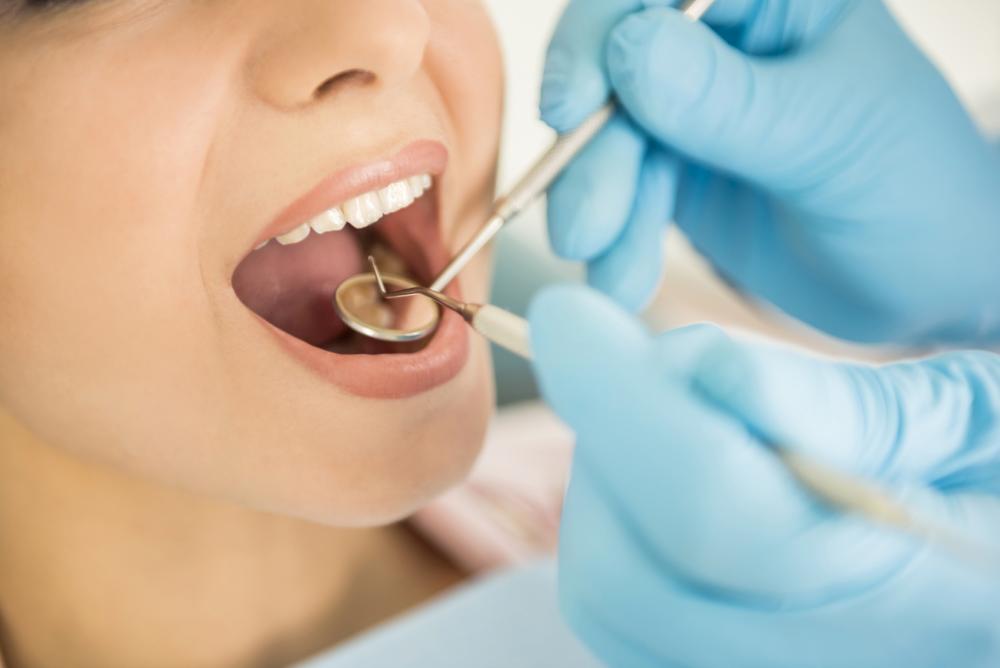Your Guide to Picking the Right Dentist Eugene OR for High Quality Service
Your Guide to Picking the Right Dentist Eugene OR for High Quality Service
Blog Article
An Overview to Usual Oral Conditions That Need a Dental professional's Treatment
Understanding the series of oral problems that require professional treatment is vital for maintaining ideal oral health. Toothaches, as an example, can be symptomatic of serious problems such as cavities, cracked teeth, or abscesses, each needing details interventions like fillings or origin canals. Gum illness, from the early phases of gingivitis to a lot more serious periodontitis, highlights the significance of normal oral examinations and cleansings. Impacted knowledge teeth and jaw problems can present considerable pain and issues. Making certain timely sees to the dentist can alleviate these concerns effectively, yet just what are the treatments and indications included?
Toothaches
Toothaches are a common oral condition that can vary from light pain to severe discomfort, usually indicating a hidden issue that requires professional attention. This pain can stem from a range of sources, consisting of tooth decays, broken or fractured teeth, and oral abscesses. Each of these conditions postures substantial threats if left without treatment, possibly resulting in extra serious issues.
Dental dental caries, likewise recognized as decays, are created by the accumulation of plaque that erodes tooth enamel, leading to holes or pits in the affected teeth. Abscesses are excruciating infections at the root of a tooth or between the gum tissue and a tooth, usually resulting from severe decay or unattended tooth cavities.
Reliable treatment of toothaches entails resolving the origin reason. This might consist of dental fillings for cavities, crowns for split teeth, or origin canals and prescription antibiotics for abscesses. Very early treatment by a dental expert can protect against additional wear and tear and minimize pain, making certain optimum oral health and wellness.
Gum Illness
Periodontal disease, a prevalent yet frequently overlooked dental problem, shows up via inflammation and infection of the gum tissues and sustaining tissues. This condition primarily takes place in 2 phases: gingivitis and periodontitis. Gingivitis, the milder kind, provides with signs and symptoms such as red, swollen gums that might bleed easily throughout cleaning or flossing. If left unattended, gingivitis can advance to periodontitis, a more severe kind defined by the devastation of the supporting bone and connective tissue, eventually resulting in tooth loss.
The primary root cause of periodontal disease is bacterial plaque, a sticky, anemic film that frequently bases on teeth. Poor oral health, cigarette smoking, genetic tendency, and specific clinical conditions, such as diabetic issues, can exacerbate the risk of developing gum tissue illness. Routine oral examinations are critical for very early discovery and management of this problem.
Treatment for gum illness varies from specialist oral cleaning and scaling to even more innovative procedures like root planing and periodontal surgical treatment, depending on the intensity. Keeping good dental health methods, consisting of brushing two times daily, flossing, and utilizing an antibacterial mouth wash, can dramatically decrease the threat of gum disease and promote much healthier periodontals.
Cavities
Dental caries, also called tooth decays, are an usual oral condition defined by the devastation of tooth enamel as a result of acid-producing microorganisms in the mouth. These germs thrive on sugars and starches from food and drinks, producing acids that slowly deteriorate the enamel, leading to dental look at this website caries development.
Early-stage cavities may not reveal signs and symptoms, yet as they advance, they can trigger toothache, sensitivity to hot or cold, visible holes or pits in the teeth, and discoloration. If left neglected, dental caries can penetrate much deeper layers of the tooth, potentially leading to severe pain, infection, and also tooth loss.
Stopping tooth cavities includes a combination of good oral health techniques and dietary habits. Regular cleaning with fluoride tooth paste, flossing, and routine dental examinations are vital. Dentists may also suggest added safety nets, such as fluoride treatments and oral sealants, to protect teeth from decay.
Small cavities can be addressed with dental fillings, which recover the tooth's structure. Extra innovative situations may need crowns or also root canal therapy if the decay has actually reached the tooth's pulp.

Impacted Knowledge Teeth
Impacted knowledge teeth are a prevalent oral problem that occurs when the third molars, frequently described as knowledge teeth, fail to fully emerge or line up correctly within the mouth. This problem usually results from insufficient room in the jaw or an abnormal development angle of the teeth. Impacted wisdom teeth can result in a variety of issues, consisting of pain, infection, and damage to surrounding teeth.
When knowledge teeth become impacted, they are usually partially erupted or remain entirely under the gum tissue line. This partial eruption can develop a pathway for germs to enter the periodontals, resulting in infections that manifest as swelling, pain, and also high temperature. In addition, influenced knowledge teeth can exert stress on neighboring teeth, possibly triggering crowding or shifting.
An extensive oral assessment, generally including X-rays, is essential for diagnosing affected knowledge teeth. Regular dental check-ups are advisable to keep track of the condition and maintain dental wellness.
Jaw Disorders
Jaw disorders, collectively understood as temporomandibular joint (TMJ) problems, encompass a variety of conditions that impact the jaw joint and bordering muscle mass. These problems can show up with signs such as pain or inflammation in the jaw, difficulty chewing, a popping or clicking audio when closing the mouth or opening, and even persistent headaches. TMJ problems can arise from numerous elements, consisting of arthritis, jaw injury, or regular habits like teeth grinding or jaw clenching.
Medical diagnosis of TMJ conditions normally involves a comprehensive examination by a dentist, including a physical assessment of the jaw, dental X-rays, and in some cases progressed imaging strategies like MRI or CT checks to examine the joint's problem. Treatment choices vary relying on the intensity of the condition. Non-invasive approaches such as physical treatment, dental splints, and medications focused on minimizing inflammation and pain are often first-line therapies. In a lot more severe cases, surgical interventions may be required to remedy structural issues within the joint.
Early treatment by an oral specialist is critical to stop the progression of TMJ disorders and to keep general oral health and wellness. People experiencing persistent jaw navigate to this site discomfort or disorder ought to seek prompt examination and treatment.
Conclusion
Keeping dental wellness demands prompt specialist care to deal with common dental conditions. Toothaches usually show underlying problems such as tooth cavities, split teeth, or abscesses, needing timely treatment. Periodontal condition, from gingivitis to periodontitis, demands normal oral check-ups and cleanings to avoid progression. Impacted wisdom teeth and jaw disorders additionally call for professional focus to reduce pain and protect against further issues. Regular dental check outs are vital for diagnosing and dealing with these conditions, making certain general oral wellness and health.
Dental tooth cavities, additionally understood as cavities, are caused by the build-up of plaque that erodes tooth enamel, leading to openings or pits in the affected teeth. Abscesses are excruciating infections at the root of a tooth or in between a tooth and the gum tissue, typically resulting from serious degeneration or neglected dental caries.

Additionally, affected wisdom teeth can apply pressure on bordering teeth, potentially causing crowding or changing.
Report this page